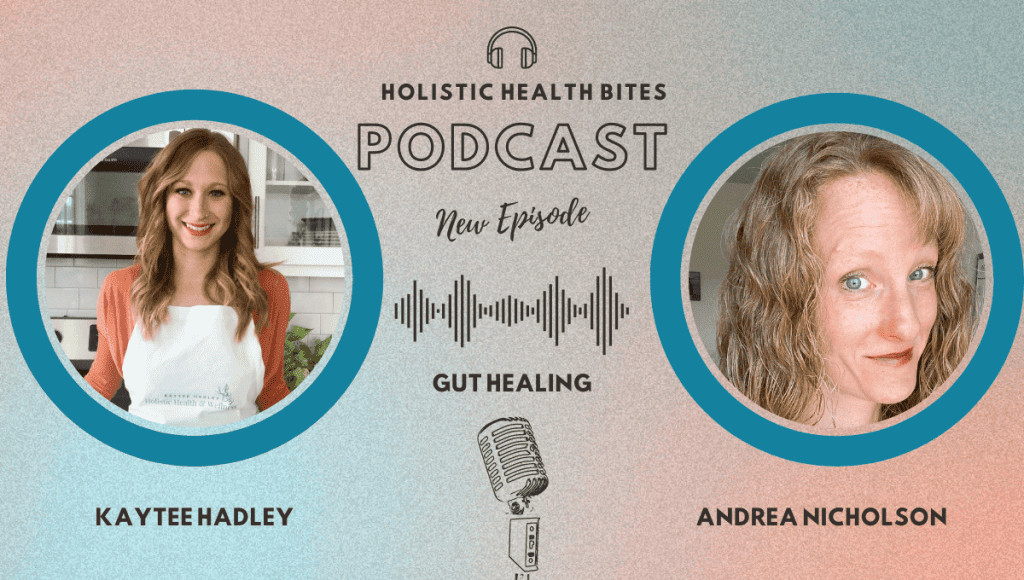
On this episode of the Holistic Health Bites podcast, I welcome special guest Katrina Foe to discuss the importance of self-advocacy in health matters, the need for testing to identify underlying health issues, and the impact of environmental factors on health. She also emphasized the role of genetics and lifestyle choices in cancer prevention and treatment. The conversation focused on the importance of nutrition, particularly in relation to cancer treatment. She also touched upon the challenges and misconceptions related to transitioning to a ketogenic lifestyle. Towards the end, she discussed the importance of understanding cancer causes and effective treatments, and the potential benefits of alternative treatments for cancer.
Episode Summary:
Cancer Journey: Self-Advocacy, Testing, and Environmental Factors
Katrina Foe shared her personal journey with cancer, including the challenge of finding a practitioner who could address her concerns and the importance of self-advocacy in health matters. She emphasized the need for testing to identify underlying health issues, such as insulin resistance and hormonal imbalances. Additionally, she touched upon the impact of environmental factors like toxic mold and stressed the importance of mental and emotional health. The discussion also highlighted the role of genetics and lifestyle choices in cancer prevention and treatment, with Katrina Foe noting the impact of trauma and the importance of knowing one's genetic predispositions. Andrea agreed, noting the relevance of these factors to a range of health conditions.
Plant-Based Diets: Pros and Cons
We discussed the importance of maintaining physical and mental health, particularly in relation to diet. Katrina highlighted the potential issues with plant-based diets, such as blood sugar imbalances, and suggested that a diet rich in plant-based foods, but also incorporating animal products, could be more beneficial. She emphasized the need for diets that are less burdensome on the body and suggested that converting beta carotene into vitamin A in plant-based diets could be problematic.
Nutrition's Role in Cancer Treatment
Katrina discussed the importance of nutrition, particularly in relation to cancer treatment. She highlighted that some people have difficulty converting certain nutrients, which can predispose them to cancer. She suggested that a ketogenic diet, which provides an alternative fuel source for cells, could help prevent muscle wasting and loss of healthy tissue, as well as reducing inflammation and eliminating toxins. They criticized the common advice of eating anything to maintain calorie intake, arguing that it often leads to excess sugar intake and neglects the underlying issue of muscle wasting. She expressed frustration about the neglect of dietary factors in medical advice.
Dietary Shift for Improved Health
Katrina explained that this change can reduce the need for antioxidants and decrease oxidative stress, leading to improved health. Together, we emphasized that this dietary shift can result in significant improvements in physical wellbeing and cognitive function.
Fats in Diets: Prioritizing Organic Sources
We discussed the types of fats in diets. Katrina emphasized the importance of avoiding vegetable oils and prioritizing organic sources for fats, given that they make up 80% of a diet. She suggested using saturated fats, such as butter and coconut oil, for cooking, and using unsaturated fats for salad dressings and other uses. She also encouraged variety in oil usage to provide different nutrient profiles.
Ketogenic Diet: Individualized Purpose and Challenges
We discussed the application of the Ketogenic diet, emphasizing that its use varies depending on the individual's health status and purpose. Katrina explained that the diet's purpose and goal can differ based on the individual's needs, with a stronger emphasis on reaching therapeutic ketosis for cancer patients. I agreed, adding that there's no need to chase super high levels of ketones for those not in a serious health condition. Katrina also highlighted potential challenges to achieving ketosis, such as genetic SNPs and toxins like mold, which can interfere with blood sugar regulation and hormone balance.
Ketogenic Lifestyle Challenges and Misconceptions
Katrina discussed the challenges and misconceptions related to transitioning to a ketogenic lifestyle. She shared her personal experience, highlighting the potential for initial discomfort and the necessity of digesting fats well to prevent this. She also touched on the importance of investigating potential health issues, rather than assuming dishonesty or infidelity from clients.
Liver, Gallbladder, and Electrolyte Support in Low-Carb Diets
Katrina emphasized the importance of supporting the liver and gallbladder through supplements and other methods, as well as replenishing electrolytes, particularly when following a low-carb diet. She explained that insulin, which is increased by carb consumption, signals the kidneys to recycle sodium, leading to water retention if carb intake is high. We both agreed that going slowly into a low-carb diet and paying attention to electrolyte balance can help avoid digestive discomfort and other issues.
Cancer Causes, Treatments, and Alternatives
We discussed the importance of understanding cancer causes and effective treatments. Katrina highlighted that cancer is not caused by one thing, but rather a combination of factors, and understanding these can guide the most effective treatments and prevent recurrence. She also emphasized the potential harm of certain alternative therapies if not properly tailored to the individual's metabolic state. Katrina shared her ebook, "The Roadmap to Prevent Recurrence," and encouraged those interested in her work to connect with her through her website and social media platforms.
To connect with Katrina:




















0 Comments